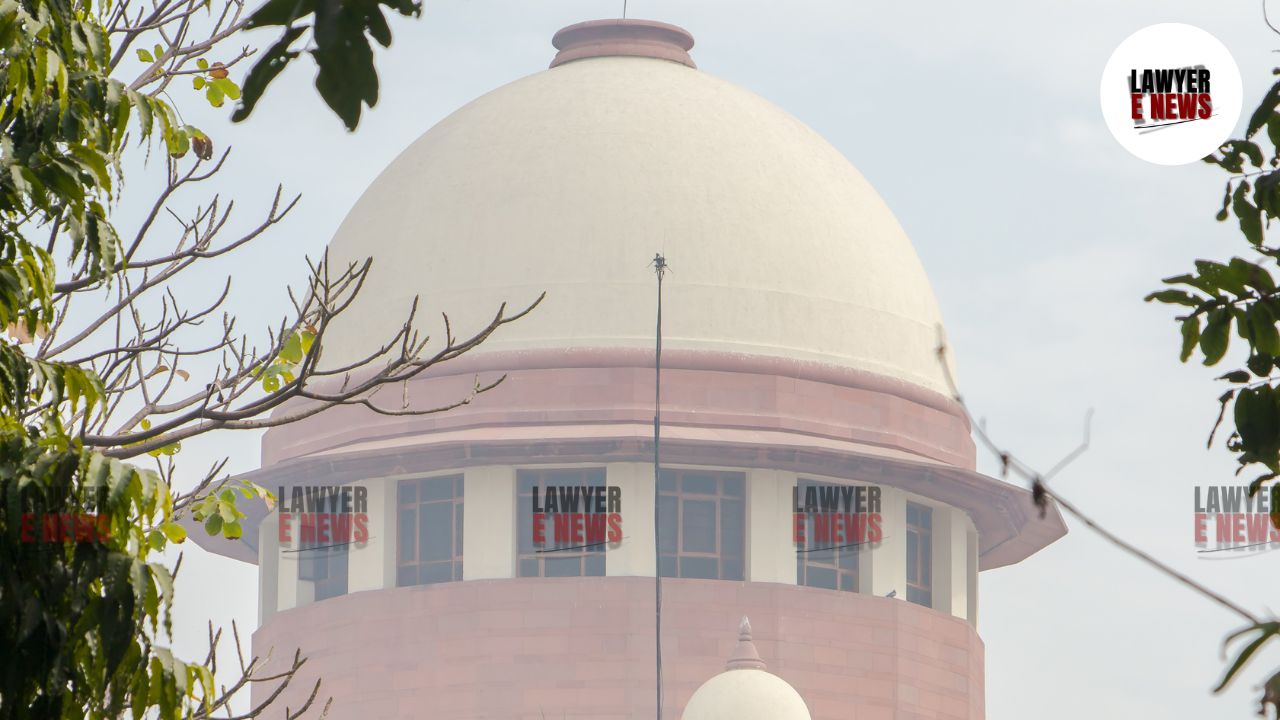-
by Admin
15 February 2026 5:35 AM



Supreme Court of India ruled that the investigation of FIR 33/2024, registered at the All Women Police Station in Anna Nagar, Chennai, would be conducted by a Special Investigation Team (SIT) comprising senior Tamil Nadu IPS officers instead of the Central Bureau of Investigation (CBI), as earlier directed by the Madras High Court.
The bench of Justice Surya Kant and Justice Ujjal Bhuyan emphasized the need for a specialized yet locally knowledgeable team to ensure the investigation's effectiveness and impartiality while avoiding delays.
“Fair Investigation Is Key, But Local Expertise Matters”
The Supreme Court underscored that the SIT, consisting of senior Tamil Nadu cadre IPS officers originating from other states, would provide the necessary balance between impartiality and regional expertise. The Court directed that the investigation be conducted objectively and free from the influence of prior judicial observations in the case.
The case centers on allegations of a grievous offense that occurred in Chennai, registered under FIR No. 33/2024. The victim’s mother petitioned for a fair and independent investigation, asserting concerns of bias in the local police’s handling of the matter. On October 1, 2024, the Madras High Court ordered the investigation to be transferred to the CBI, citing potential concerns about local police impartiality.
The Deputy Commissioner of Police and other appellants challenged this order before the Supreme Court, proposing an alternative: a locally constituted SIT with no affiliations to Tamil Nadu, to ensure both efficiency and fairness. The victim’s mother, represented through counsel, agreed to this proposal.
The Court constituted a three-member SIT, comprising:
Saroj Kumar Thakur, IPS, DIG, presently Joint Commissioner of Police, East Zone, Greater Chennai Police.
Ayman Jamal, IPS, SP, presently Deputy Commissioner of Police, Law & Order, Avadi Commissionerate.
Brinda, IPS, SP, presently Deputy Commissioner of Police, North (Law & Order), Salem City.
The Court entrusted the SIT with the full investigation records, directing that all other responsibilities assigned to these officers be minimized to facilitate a focused and expedited probe. The SIT is required to submit its initial report to the Chief Justice of the Madras High Court, who may constitute an appropriate bench to monitor the investigation and issue further directions.
The Supreme Court instructed the SIT to:
Submit periodic reports, preferably weekly, to the Madras High Court until the investigation concludes.
Proceed without being influenced by observations in the High Court’s earlier order, which had commented on the nature of the case and the investigation.
Ensure the investigation is dispassionate and comprehensive, leaving no aspect of the offense unexamined.
Additionally, the Court granted ₹75,000 in litigation and miscellaneous expenses to the respondent (victim’s mother) and directed the Tamil Nadu government to comply within one week.
The Supreme Court’s order reflects a nuanced approach to balancing impartiality and efficiency in high-stakes investigations. By constituting an SIT with local expertise but external impartiality, the Court seeks to address the concerns of bias while minimizing procedural delays often associated with CBI investigations.
The case reaffirms the judiciary’s role in shaping investigative processes to protect the rights of victims while maintaining public confidence in law enforcement and the judicial system.
Date of Decision: November 18, 2024.
